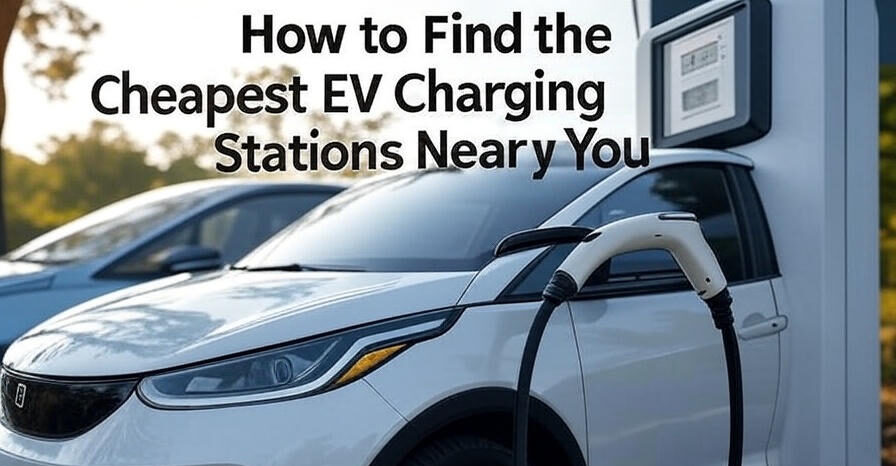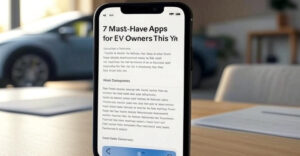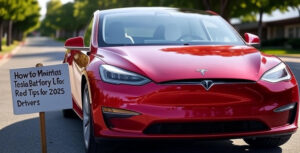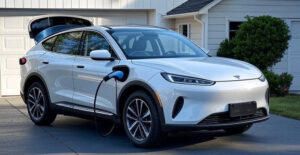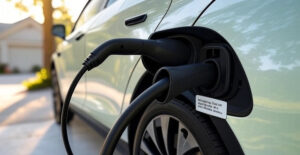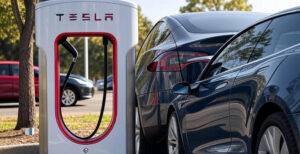Summary
Let’s be real: owning an electric car is amazing… until you’re staring at that battery icon creeping toward zero with no clue where to juice up for cheap. It’s like having a smartphone that can’t find a charger at a house party — panic mode sets in fast!
But don’t freak out — finding the cheapest EV charging stations near you in 2025 is easier than you think. Whether you’re road-trippin’ cross-country or just tryin’ to keep your daily commute wallet-friendly, I’m gonna break down my best hacks, tools, and real-life slip-ups so you don’t waste a single electron (or dollar).
Grab your coffee, plug in your phone (ironically), and let’s get you powered up smarter, not poorer.
Why Cheap Charging Matters More Than You Think
1. Not All Chargers Are Created Equal
One public charger might cost you $5, another $35 for the same top-up. Insane, right? Pricing depends on the network, speed, your car’s battery, and where you live.
2. Gas Prices Aren’t the Only Thing That Fluctuates
We used to whine about gas prices but now it’s kilowatt-hour rates. Some stations charge by the minute, some by the kWh, some slap on idle fees. It adds up fast.
3. Good Habits Save Big Over Time
Smart EV owners know where the best deals are. If you just plug in anywhere ‘cause it’s convenient, you’ll spend way more every month.
The Basics: What Affects Charging Prices?
⚡️ Charging Speed
Level 1 (110V outlet): Basically a trickle. Good for emergencies at home, not for road trips.
Level 2 (240V): Most public stations. Reasonable speed, good prices.
DC Fast Charging: Super fast but can cost 2-4x more. Use only when needed!
🏷️ The Charging Network
ChargePoint, Electrify America, EVgo, Tesla Supercharger — each has its own prices, fees, and membership perks. Some charge connection fees too.
📍 Location, Location, Location
Stations at grocery stores or hotels might be cheaper (sometimes even free!) while busy city fast chargers cost more. Highways = pricey. Suburbs or workplaces = cheaper.
Best Ways to Find Cheap EV Charging Stations
🚗 1. Use Smart Apps — Your Secret Weapon
If you own an EV and don’t have a charging app, you’re doing it wrong.
Check these out:
- PlugShare: User reviews, prices, photos. Super handy.
- A Better Route Planner: Plots your entire route based on cheap chargers.
- ChargePoint: Shows real-time pricing, availability, and wait times.
- Tesla’s built-in nav: Tesla drivers swear by it for finding the cheapest Superchargers.
Tip: Always check the user comments — they’ll warn you about broken or overpriced stations.
🏬 2. Scope Out Free or Discounted Spots
Some stores or workplaces offer free charging as a perk. A few places to look:
✅ Grocery stores like Whole Foods, Aldi, Walmart
✅ Malls — while you shop, your car charges for free
✅ Universities, hospitals, and hotels sometimes do it for guests
✅ Local government buildings
Free doesn’t always mean fast though — so plan ahead.
💸 3. Join Membership Programs
Networks like Electrify America or EVgo offer subscription deals — pay a flat monthly fee and get discounted rates per kWh. For daily commuters, it’s totally worth it.
Example: A buddy of mine drives 50 miles daily. His EA Pass+ saves him about $40/month vs. paying walk-up rates.
🏡 4. Charge at Home Smartly
Sure, this post’s about finding public stations, but the cheapest charge is the one you do at home overnight. Time-of-use rates can slash your bill.
If you can, install a Level 2 charger and program it to juice up after midnight. It’s cheaper than public stations most of the time.
🗺️ 5. Plan Your Trips with Charging in Mind
Long trip? Don’t just wing it.
Apps like A Better Route Planner help map out stops where you can charge for less, avoid peak times, and skip expensive city stations.
🏷️ 6. Watch for Idle Fees
Big rookie mistake: leaving your EV plugged in after it’s done. Some networks charge $1/minute once you’re full — brutal. Set an alarm on your phone so you don’t pay to nap in the car!
⚡️ 7. Compare kWh vs. Per Minute
Tricky part: some states don’t allow per-kWh pricing, so it’s by the minute. That means a slow charger can burn your wallet if you’re paying for time instead of energy.
Always check how your station charges and pick the fastest one if you’re paying by the minute.
Real Story: My $45 Charging Mistake
I once thought “fast is better” so I used a DC Fast Charger at peak hours. Guess what? That 20-minute top-up cost me almost 50 bucks. Should’ve used a Level 2 down the street for $12. Don’t be me.
Extra Tips to Keep Your Charging Cheap
✅ Drive smooth — heavy foot means more frequent charging.
✅ Pre-condition your battery when it’s freezing — it’ll charge faster and cheaper.
✅ Keep your charging cable in good shape.
✅ Use regenerative braking if your EV has it — free juice!
✅ Don’t trust your battery % blindly — plan for a buffer, always.
Q&A: Your Cheap Charging Questions Answered
1. How do I find free EV chargers?
Use PlugShare or ChargePoint and filter by “Free.” Grocery stores and hotels often pop up!
2. Is fast charging always more expensive?
Most times, yes — fast chargers cost 2-4x more per kWh. Use ‘em only when you’re short on time.
3. Is home charging cheaper than public?
Almost always! Especially if you charge overnight on off-peak rates.
4. Are membership plans worth it?
If you use the same network a lot, totally. Frequent users save $20-$50 a month on average.
5. Does it cost more to charge when it’s cold?
Yes — cold batteries charge slower. Try to preheat your car or park indoors if you can.
6. Can I use any charger with my EV?
Most yes — but Tesla Superchargers mainly for Teslas. Some are opening up for other EVs though.
7. Should I install a home charger?
If you have a driveway or garage, 100% yes. It pays for itself fast.
8. What about charging at work?
Best thing ever if it’s free. Just don’t hog the spot all day.
9. Do chargers ever lie about prices?
Sometimes! Check user reviews or look at the app before you plug in.
10. How do I avoid idle fees?
Set a timer on your phone. Move your car once it hits your charge goal.
11. Are there peak hours I should avoid?
Yep — mornings and evenings are pricy in busy areas. Late night or midday is usually cheaper.
12. Do cheap chargers damage my battery?
Nope — it’s the same power source. Just avoid sketchy, poorly maintained stations.
Final Plug: Save That Battery, Save That Cash
Look — charging your EV doesn’t have to drain your wallet or your sanity. The trick is using the right tools, planning ahead, and not getting suckered by overpriced DC Fast Chargers every dang time.
Next time you’re road-tripping or even just zipping across town, check those apps, grab the cheapest plug you can find, and watch that money stay where it belongs — in your bank account (or your snack fund, no judgment).
Stay charged, stay smart, and keep on rollin’!
